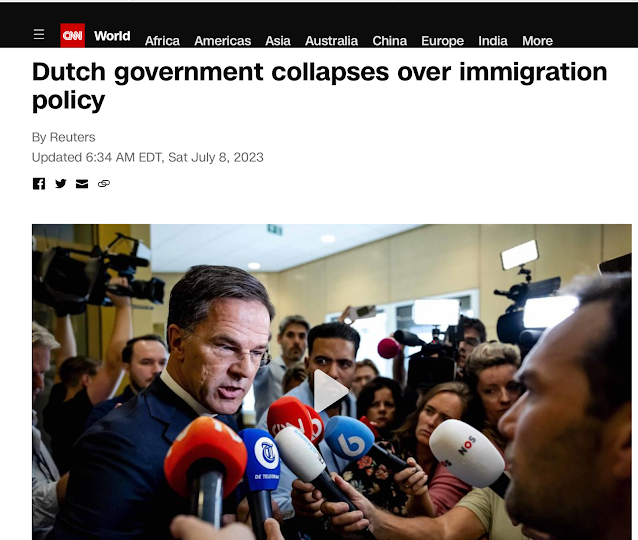Here's a basic summary of what inspried todays blog from CNN:
Below are three points which address what I consder to be basic ethical concerns. They are from this New York Times (subscription) article from July 7th.
- “One of the values that are important with the proposals is that children grow up with their parents,” a statement by the Christian Union party said. “As a family party, that is what we stand for.” The party said it wanted to work with “heart and soul for a humane and effective migration policy.”
- The large numbers of arrivals have strained the Netherlands’ housing capacity, which was already suffering a shortage for the country’s more than 17 million people.
- “Everybody wants to find a good, effective solution that also does justice to the fact that this is about human lives,” the finance minister, Sigrid Kaag, a member of the D66 party, said before the talks began.
“I still believe, in spite of everything, that people are truly good at heart.”
The story of teenage diarist Anne Frank is known across the world. But a new survey suggests a “disturbing” lack of awareness about the Holocaust in the Netherlands, where she and her family hid for years before being discovered and deported to a Nazi concentration camp.
and goes on as follows:
A Dutch Holocaust survivor and Jewish cultural leaders have expressed dismay at the survey, which was released Wednesday and suggests that more than half of the residents were not aware of the deportation and murder of Jews from the country during World War II.
The survey, conducted and released by the New York-based nonprofit Claims Conference ahead of International Holocaust Memorial Day on Friday, found that 53% of the respondents couldn’t identify the Netherlands as a country where the events of the Holocaust happened — rising to 60% among millennial and Gen Z respondents, meaning those under 40.
Historians estimate more than 70% of the Netherlands’ prewar Jewish population was killed during the Holocaust, more than 100,000 in total. Frank hid in a secret room in Amsterdam with her family from 1942 to 1944 before she died at the Bergen-Belsen concentration camp weeks before its liberation.
I can do no better than to end this blog with a quote from Mark Lezer who was six when the NAZI's invaded the Netherlands and who lost family in the Holocaust. He said it is imperative that the story of the Holocaust should never be allowed to fade from memory.
“Because if you don’t know enough about the Holocaust and you do not know that so many people died because of the Nazi persecution, then you do not know enough to be realistic about the future.”
This should go not only for the Dutch, but for everyone whose country is facing a push by authoriatians who envision ruling over a country not too different than what Hitler wanted for Germany.







